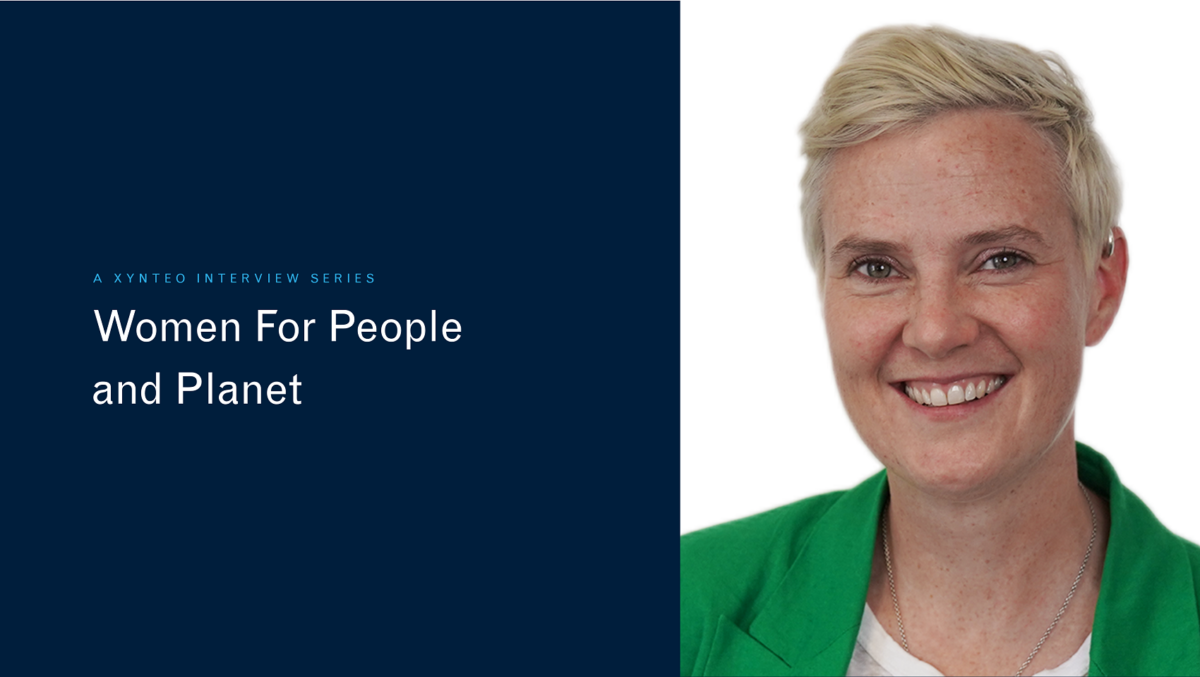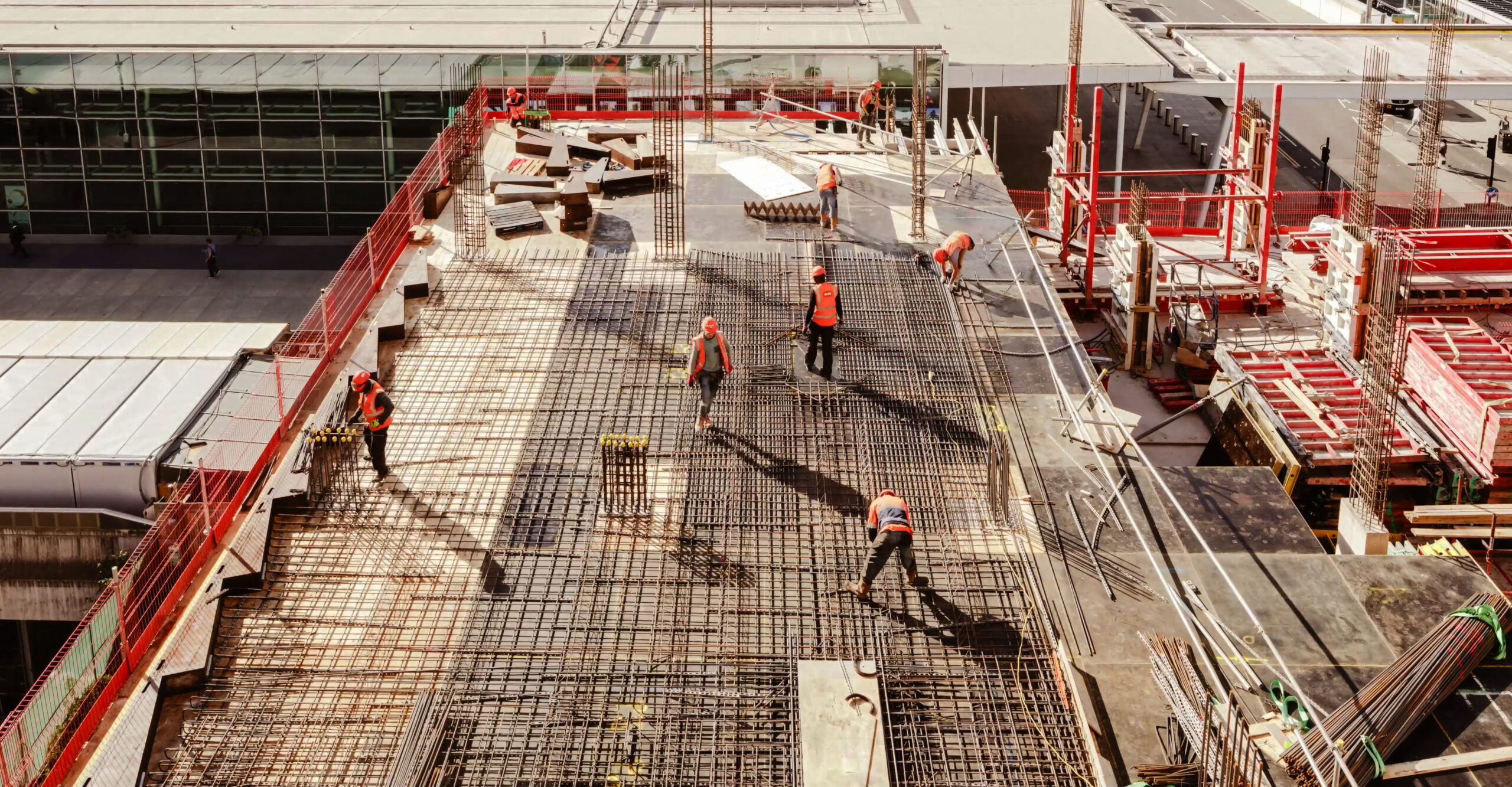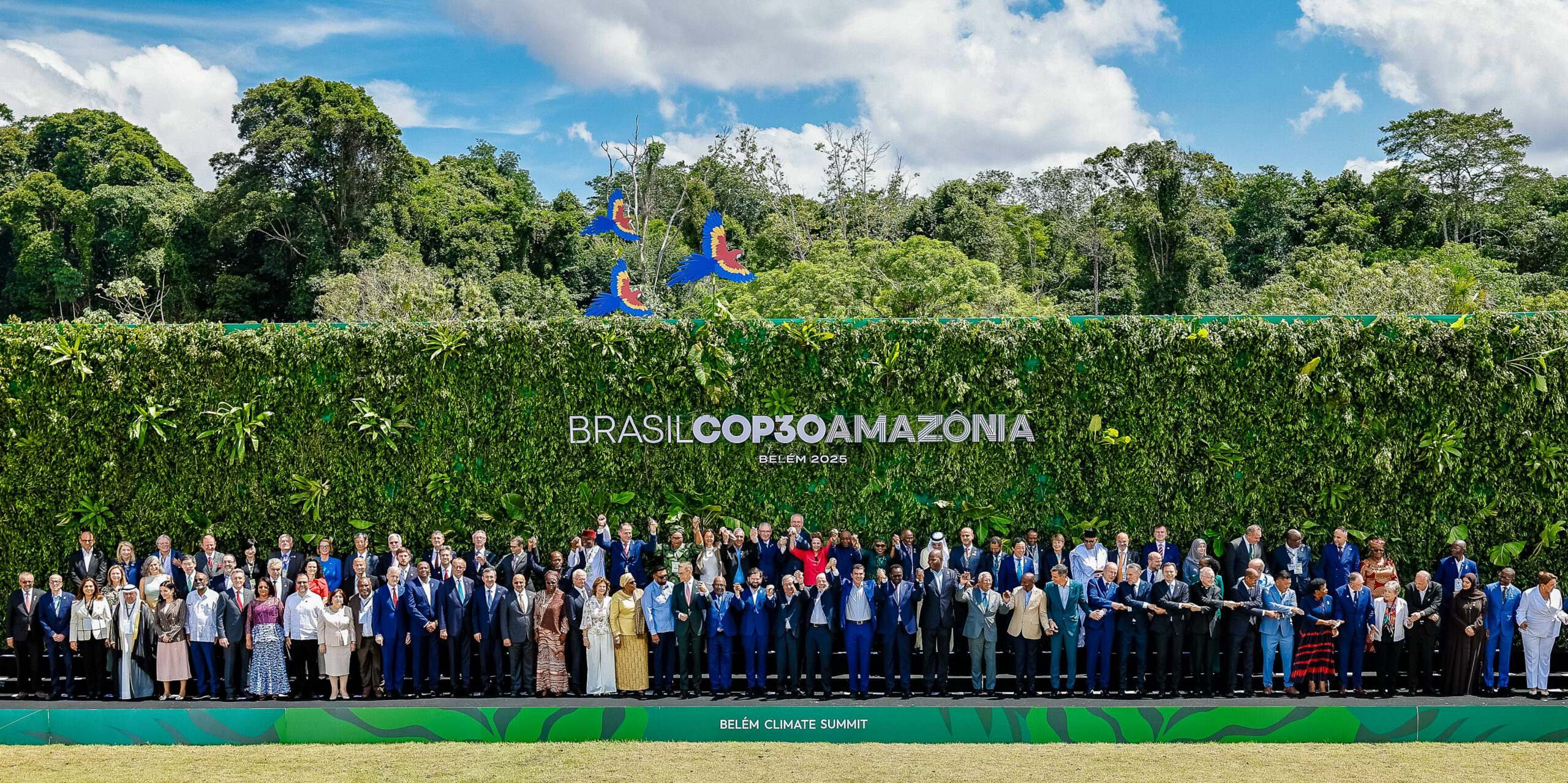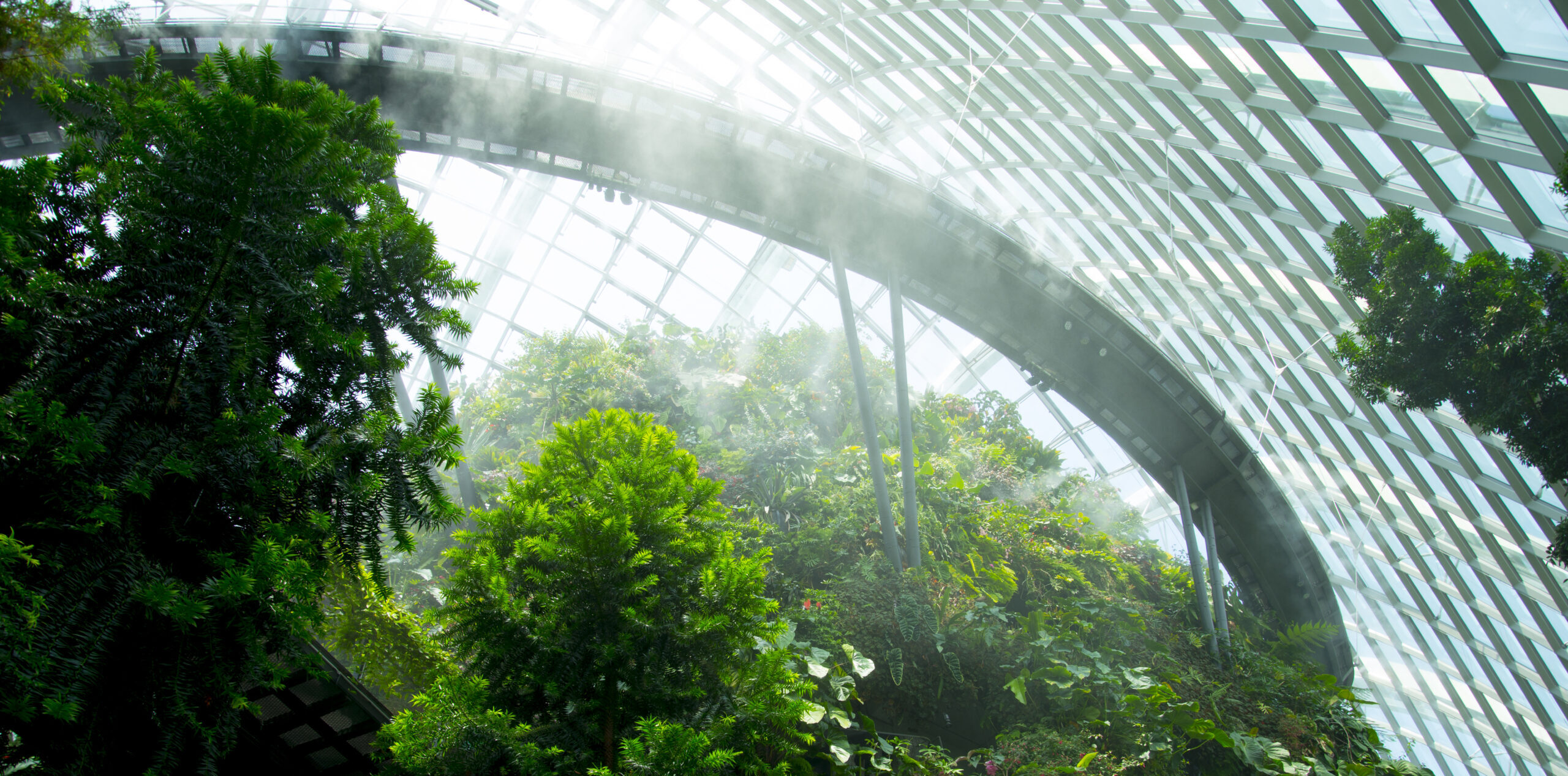Abby knew from early-on that sustainability or ‘making a difference’ was the plan for her career and it has had some unpredictable twists and turns. She now leads sustainability at Openreach as Head of Sustainability.
Xynteo’s Eleanor Besley-Gould sat down with Abby to talk about her journey, what she has learnt, and how she sees the future of sustainability in the corporate world.
What does your personal journey towards sustainability look like?
Abby: I specialised in Anglo-Saxon at University, which is not a natural segue into sustainability. It was fun, but its transferable skills are probably crosswords and not much more(!) But I’d always been interested in sustainability, even before sustainability was a thing. It wasn’t a career when I went to school—it was just doing good stuff.
I didn’t really know what to do, so I applied to the Waitrose graduate scheme. I spent quite a long time there and managed to do quite a lot with the sustainability teams, both at Waitrose and John Lewis. And then I moved to Selfridges and ran the Food Hall in Selfridges.
I ran into the Director of Sustainability at Selfridges at an internal networking event, got chatting with her and followed her on Twitter (now X), and then later she posted that the company was looking for a sustainability lead. I messaged her directly about applying, despite my lack of direct sustainability experience, and she hired me! She could see the value of knowing how to manage people and stakeholders, and recognised that with sustainability developing so quickly, the academic of the work could be picked up. So, she took a chance on me being able to learn the technical details and create a positive impact.
Selfridges was a fascinating place, and I ended up staying there for seven years. We spent a good deal of time on ocean protection – plastics, sea life, fish, fish leather and so on, and we made some really great impact, but I’d go to a lot of events where I’d be asked, what’s the ocean got to do with the department store? So, we thought okay, time to take a step back and think about it again.
This is when materiality started to become more of a thing and prompted up to look more at what we should be doing. What is our responsibility? What is our impact that we’re going to try and mitigate? The first campaign in mentioned before was called Project Ocean, and it was natural that the next one became Project Earth—slowing down the linear consumption of fashion.
What are the skills and experiences that you’ve valued the most on this journey and have equipped you best?
Abby: As with everything, it’s a mix and it depends on which bit of the puzzle you’re trying to solve. I’m recruiting at the moment, and I’ve got one person who is not a sustainability person by trade but a person of hearts and minds. And then I’m going to hire somebody who is a technical carbon circular economy lead—they’re very different skill sets and hopefully they will complement each other quite nicely. But as with everything, it takes a whole jigsaw of different skill sets.
I think in my role, stakeholder engagement and influencing is probably the biggest asset, because you’re just trying to convince a lot of people to do this with you.
If you have a gamut of people who are absolutely on board and want to do the right thing and you’re able to steer them in the right direction, they’re going to go for it. Other people who are sceptical may feel like this is a waste of their time. One of the biggest questions we get is, oh, how can we really make a difference? Akll of these views are valid and require different messaging.
What opportunities have been the most important to making progress in your sustainability journey?
Abby: That’s a great question. One of the most interesting opportunities has been the learning I’ve needed to do following a complete sector pivot from retail to networks. It’s such a great learning space because it’s totally new to me. And actually once you position yourself in that I am here, just trying to figure stuff out and I don’t know anything about your tech space, then you have a fresh perspective.
Openreach is largely about innovation, engineering, and solving problems. So the mindset is that if you can get people to understand the problem and want to solve it, then you’ve got all that force behind it. So that one’s been brilliant.
Unless you’re working for someone who is really ‘purpose’ at the core – everyone else is doing the ‘business’. Trying to change it and working to get people to shift fundamentally how they are operating takes a lot of drive and force.
What barriers have you faced?
Abby: I think everyone in the sustainability sector faces a similar challenge. Unless you’re working for a Patagonia or a Toast Ale or Elephant Grass or someone who is really “purpose” at the core – everyone else is doing the business. Trying to change it and working to get people to shift fundamentally how they are operating takes a lot of drive and force.
At Selfridges, we had a huge and powerful lever in the form of the owner, who was really passionate about it and helped open a lot of doors. But I think trying to retrofit sustainability into any kind of organisation is much harder. If you can do it from the start it’s amazing, but most of us are kind of working backwards.
And then there’s the logistics – just trying to get time in people’s diaries and convincing them to prioritise those initial discussions before they own the problem or the solution can be a struggle.
One of my biggest challenges at Openreach when I started was knowing who to talk to about which bits of my delivery. I know there’d be somebody who is interested in this bit of the problem that I’m trying to solve, but I don’t even know where to start. It can be quite lonely sometimes because although you may have the buy-in of the person who recruited you, there’s still a job to bring everyone else on board. Not to mention the fact that there’s a lot of protection of business as usual.
What has been your proudest impact moment?
Abby: One of my proudest moments was definitely the glitter ban at Selfridges—banning microbeads was straightforward, but we realised glitter was an overlooked microplastic issue, especially in beauty products, and for events like Pride.
The beauty industry objected, saying banning glitter would be too costly. Then the makeup artist Pat McGrath, famous for her signature glitter lip look, launched in the UK with us. We explained the issue, and her team committed to developing an alternative formula within 18 months. Having that influential ally on board helped tremendously in convincing other reluctant brands. We ended up pivoting to eco-friendly “bio glitter”. It was a big win that allowed us to really educate and make an impact on that overlooked microplastic problem.
I also brought that experience to Pride in London when I was the Director of Volunteering there. We strongly recommended eco-glitter alternatives and had glitter face painters using those products.
How do you see the future of the CSO role/sustainability teams in the board room?
Abby: I saw a LinkedIn post the other day, where a CEO had said that sustainability and carbon are top of the agenda in almost every conversation he has with customers. That is quite a radical shift – even a year ago that would have been a surprise. But we get asked all the time about it by all kinds of different stakeholders. Customers and investors are probably the biggest and the loudest. And that gets people to pay attention.
I’m quite lucky to have worked for a series of MDs who get the business value to this. I think there are more leaders now who really understand that this work is business critical. But they really need help on the what, the how, and the prioritisation.
Are you optimistic that we can solve sustainability challenges overall?
Abby: I can’t engage with a mindset of what if we can’t? So I have to be optimistic. It’s almost wilful denial, but I’m reminded of the starfish story: there’s a kid throwing starfish back into the ocean, and someone tells them “you can’t possibly make a difference”. The kid picks up a starfish, looks at it, throws it back in, saying “well, I made a difference to that one”.
It feels a bit like that—we might not solve everything, but we can make things vastly better, so we just have to keep going starfish by starfish.
To be inspired by all our latest interviews, visit our Women for People and Planet interview hub.
Read moreStay up to date with our latest interviews by following us on social media (LinkedIn I Twitter), or Contact Us to find out how we can help your leaders and organisation create people and planet-positive impact.



